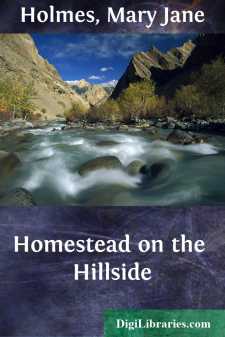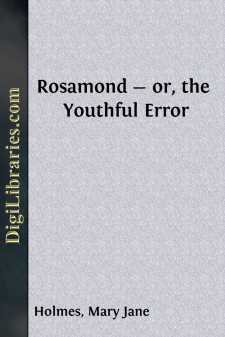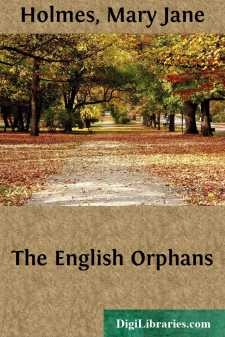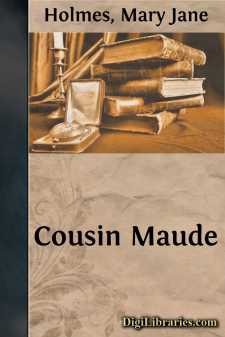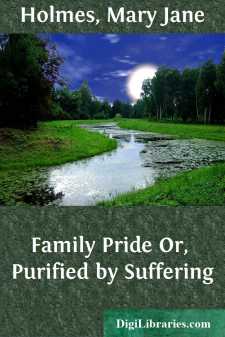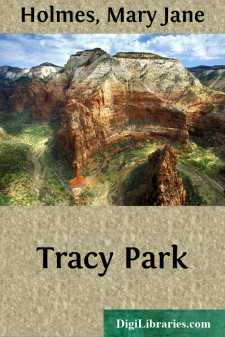Categories
- Antiques & Collectibles 13
- Architecture 36
- Art 48
- Bibles 22
- Biography & Autobiography 813
- Body, Mind & Spirit 142
- Business & Economics 28
- Children's Books 15
- Children's Fiction 12
- Computers 4
- Cooking 94
- Crafts & Hobbies 4
- Drama 346
- Education 46
- Family & Relationships 57
- Fiction 11829
- Games 19
- Gardening 17
- Health & Fitness 34
- History 1377
- House & Home 1
- Humor 147
- Juvenile Fiction 1873
- Juvenile Nonfiction 202
- Language Arts & Disciplines 88
- Law 16
- Literary Collections 686
- Literary Criticism 179
- Mathematics 13
- Medical 41
- Music 40
- Nature 179
- Non-Classifiable 1768
- Performing Arts 7
- Periodicals 1453
- Philosophy 64
- Photography 2
- Poetry 896
- Political Science 203
- Psychology 42
- Reference 154
- Religion 513
- Science 126
- Self-Help 84
- Social Science 81
- Sports & Recreation 34
- Study Aids 3
- Technology & Engineering 59
- Transportation 23
- Travel 463
- True Crime 29
Homestead on the Hillside
by: Mary Jane Holmes
Categories:
Description:
Excerpt
CHAPTER I.
MRS. HAMILTON.
For many years the broad, rich acres, and old-fashioned, massive building known as "The Homestead on the Hillside," had passed successively from father to son, until at last it belonged by right of inheritance to Ernest Hamilton. Neither time nor expense had been spared in beautifying and embellishing both house and grounds, and at the time of which we are speaking there was not for miles around so lovely a spot as was the shady old homestead.
It stood at some distance from the road, and on the bright green lawn in front were many majestic forest trees, on which had fallen the lights and shadows of more than a century; and under whose widespreading branches oft, in the olden time, the Indian warrior had paused from the chase until the noonday heat was passed. Leading from the street to the house was a wide, graveled walk bordered with box, and peeping out from the wilderness of vines and climbing roses were the white walls of the huge building, which was surrounded on all sides by a double piazza.
Many and hallowed were the associations connected with that old homestead. On the curiously-carved seats beneath the tall shade trees were cut the names of some who there had lived, and loved, and passed away. Through the little gate at the foot of the garden and just across the brooklet, whose clear waters leaped and laughed in the glad sunshine, and then went dancing away in the woodland below, was a quiet spot, where gracefully the willow tree was bending, where the wild sweetbrier was blooming, and where, too, lay sleeping those who once gathered round the hearthstone and basked in the sunlight which ever seemed resting upon the Homestead on the Hillside.
But a darker day was coming; a night was approaching when a deep gloom would overshadow the homestead and the loved ones within its borders. The servants, ever superstitious, now whispered mysteriously that the spirits of the departed returned nightly to their old accustomed places, and that dusky hands from the graves of the slumbering dead were uplifted, as if to warn the master of the domain of the desolation; which was to come. For more than a year the wife of Ernest Hamilton had been dying—slowly, surely dying—and though when the skies were brightest and the sunshine warmest she ever seemed better, each morning's light still revealed some fresh ravage the disease had made, until at last there was no hope, and the anxious group which watched her knew full well that ere long among them would be a vacant chair, and in the family burying ground an added grave.
One evening Mrs. Hamilton seemed more than usually restless, and requested her daughters to leave her, that she might compose herself to sleep. Scarcely was she alone when with cat-like tread there glided through the doorway the dark figure of a woman, who advanced toward the bedside, noiselessly as a serpent would steal to his ambush. She was apparently forty-five years of age, and dressed in deep mourning, which seemed to increase the marble whiteness of her face. Her eyes, large, black, and glittering, fastened themselves upon, the invalid with a gaze so intense that Mrs. Hamilton's hand involuntarily sought the bell-rope, to summon some one else to her room.
But ere the bell was rung a strangely sweet, musical voice fell on her ear, and arrested her movements. "Pardon me for intruding," said the stranger, "and suffer me to introduce myself. I am Mrs. Carter, who not long since removed to the village. I have heard of your illness, and wishing to render you any assistance in my power, I have ventured, unannounced, into your presence, hoping that I at least am not unwelcome."
Mrs. Hamilton had heard of a widow lady, who with an only daughter had recently removed to the village, which lay at the foot of the long hill on which stood the old homestead. She had heard, too, that Mrs. Carter, though rather singular in some respects, was unusually benevolent, spending much time in visiting the sick and needy, and, as far as possible, ministering to their comfort.
Extending her hand, she said, "I know you by reputation, Mrs. Carter, and feel greatly pleased that you have thought to visit me. Pray be seated."
This last invitation was superfluous, for with the air of a person entirely at home, the lady had seated herself, and as the room was rather warm, she threw back her bonnet, disclosing to view a mass of rich brown hair, which made her look several years younger than she really was. Nothing could be more apparently kind and sincere than were her words of sympathy, nothing more soothing than the sound of her voice; and when she for a moment raised Mrs. Hamilton, while she adjusted her pillows, the sick woman declared that never before had any one done it so gently or so well.
Mrs. Carter was just resuming her seat when in the adjoining hall there was the sound of a heavy tread, and had Mrs. Hamilton been at all suspicious of her visitor she would have wondered at the flush which deepened on her cheek when the door opened and Mr. Hamilton stood in their midst. On seeing a stranger he turned to leave, but his wife immediately introduced him, and seating himself upon the sofa, he remarked, "I have seen you frequently in church, Mrs. Carter, but I believe I have never spoken with you before."
A peculiar expression flitted over her features at these words, an expression which Mr. Hamilton noticed, and which awoke remembrances of something unpleasant, though he could not tell what.
"Where have I seen her before?" thought he, as she bade them good night, promising to come again and stay a longer time. "Where have I seen her before?" and then involuntarily his thoughts went back to the time, years and years ago, when, a wild young man in college, he had thoughtlessly trifled with the handsome daughter of his landlady. Even now he seemed to hear her last words, as he bade her farewell: "You may go, Ernest Hamilton, and forget me if you can, but Luella does not so easily forget; and remember, when least you expect it, we shall meet again."
Could this strange being, with honeyed words and winning ways, be that fiery, vindictive girl? Impossible!—and satisfied with this conclusion Mr. Hamilton resumed his evening paper.
From the windows of a small, white cottage, at the extremity of Glenwood village, Lenora Carter watched for her mother's return. "She stays long," thought she, "but it bodes success to her plan; though when did she undertake a thing and fail!"
The fall of the gatelatch was heard, and in a moment Mrs. Carter was with her daughter, whose first exclamation was, "What a little eternity you've been gone! Did you renew your early vows to the man?"
"I've no vows to renew," answered Mrs. Carter, "but I've paved the way well, and got invited to call again."
"Oh, capital!" said Lenora. "It takes you, mother, to do up things, after all; but, really, was Mrs. Hamilton pleased with you?"
"Judging by the pressure of her hand when she bade me good-by I should say she was," answered Mrs. Carter; and Lenora continued: "Did you see old moneybags?"
"Lenora, child, you must not speak so disrespectfully of Mr. Hamilton," said Mrs. Carter.
"I beg your pardon," answered Lenora, while her mother continued: "I saw him, but do not think he recognized me; and perhaps it is as well that he should not, until I have made myself indispensable to him and his family."
"Which you will never do with the haughty Mag, I am sure," said Lenora; "but tell me, is the interior of the house as handsome as the exterior?"
"Far more so," was the reply; and Mrs. Carter proceeded to enumerate the many costly articles of furniture she had seen.
She was interrupted by Lenora, who asked, "How long, think you, will the incumbrance live?"
"Lenora," said Mrs. Carter, "you shall not talk so. No one wishes Mrs. Hamilton to die; but if such an afflictive dispensation does occur, I trust we shall all be resigned."
"Oh, I keep forgetting that you are acting the part of a resigned widow; but I, thank fortune, have no part to act, and can say what I please."
"And spoil all our plans, too, by your foolish babbling," interposed Mrs. Carter.
"Let me alone for that," answered Lenora. "I haven't been trained by such a mother for nothing. But, seriously, how is Mrs. Hamilton's health?"
"She is very low, and cannot possibly live long," was the reply.
Here there was a pause in the conversation, during which we will take the opportunity of introducing more fully to our readers the estimable Mrs. Carter and her daughter. Mr. Hamilton was right when he associated the resigned widow with his old flame, Luella Blackburn, whom be had never seriously thought of marrying, though by way of pastime he had frequently teased, tormented, and flattered her. Luella was ambitious, artful, and designing. Wealth and position was the goal at which she aimed. Both of these she knew Ernest Hamilton possessed, and she had felt greatly pleased at his evident preference. When, therefore, at the end of his college course he left her with a few commonplace remarks, such as he would have spoken to any familiar acquaintance, her rage knew no bounds; and in the anger of the moment she resolved, sooner or later, to be revenged upon him....


